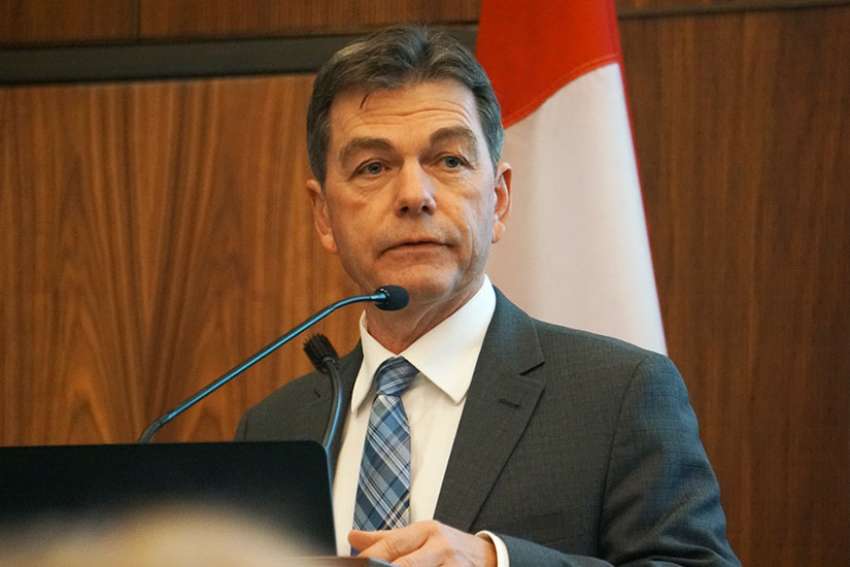The Liberal government defends the changes, arguing other sections of the Criminal Code apply.
Bill C-51 would remove section 176 (1) of the Criminal Code that protects clergy from being obstructed by force or threats from conducting worship services, and applies sanctions against those who would disrupt or obstruct worship services.
“By repealing this section, the government will be removing the only provision in the Criminal Code that directly protects the rights of individuals to freely practise their religion, whatever that religion may be,” said MP David Anderson, the Conservative critic for religious freedom and human rights, in a release. “In a time where news stories are increasingly reporting attacks on religious communities in Canada, this proposal greatly concerns me.
“We must stand up for the rights of all Canadians to practise their religion without fear of recrimination, violence or disturbance,” he said.
The government says the Criminal Code has other provisions to protect places of worship and clergy.
“Bill C-51 proposes changes to modernize Canada’s Criminal Code, including by repealing obsolete or redundant offences,” said Ian McLeod, a senior media relations spokesman for the Justice Department. “The conduct addressed by section 176 continues to be addressed through other offences including, for example, causing a disturbance (section 175), all forms of assault (sections 265- 268) and uttering threats (section 264.1). Canada’s hate crimes further prohibit conduct that incites hatred against identifiable groups, including those distinguished by religion (sections 318- 319).”
Conservative MP Cathay Wagantall said the government is sending a mixed message when it comes to religious freedom.
“The Liberals were very supportive of Motion No. 103, which protects Muslims from an undefined term, ‘Islamophobia,’ yet Bill C-51 proposes to remove the only provision in the Criminal Code that protects all religious communities and all religious officials,” she told the House of Commons June 15.
But Msgr. Kevin Beach, pastor of St. Patrick’s Basilica, the oldest English-language parish in Ottawa, is not sure the Criminal Code is the best tool to use.
“I think if they can find a solution outside the criminal proceedings that would be an improvement,” he said.
A woman was charged under that provision for disrupting Mass in May. This was the third disruptive visit the woman made to St. Patrick’s. The first visit, in between Masses, the woman damaged three Stations of the Cross. The second visit, before a Sunday evening Mass, she jumped up, screaming, onto the altar rail, grabbed the arm of the almost life-sized crucifix and broke it off.
“It was unnerving for people to have this rampage going on,” Beach said. “Frankly we don’t want to be engaged with the criminal justice system because of the time and resources on our end that would be required. It’s not where the Church wants to be involved.
“Usually we don’t have to go to that extent,” he said. “Disruptive people can be told they are no longer welcome here, that they are trespassing and we’ll call the police... We want to keep it as simple and hopefully and as charitable as possible.
“We’re more often dealing with people who’ve got mental health or addiction issues than with people who have political or social objections.”
For Campaign Life Coalition, it’s not only worship services inside churches and other religious institutions that need protection, but also events like the annual Candlelight Vigil at the Human Rights Monument on the eve of the National March for Life.
Campaign Life’s government relations director Johanne Brownrigg said they pointed out this section of the law to the Ottawa police when they were discussing security measures for the Vigil and the March.
“We firmly believe this gave the solemn prayerful event the kind of protection from protesters that we had hoped to receive,” Brownrigg said. “All religious organizers should be gravely concerned. The Liberal government is doing this to what end?”


